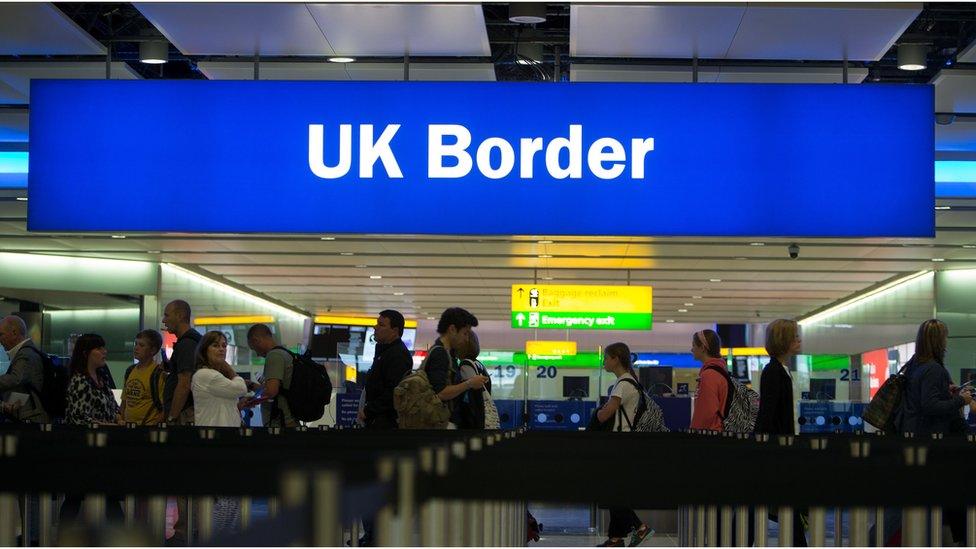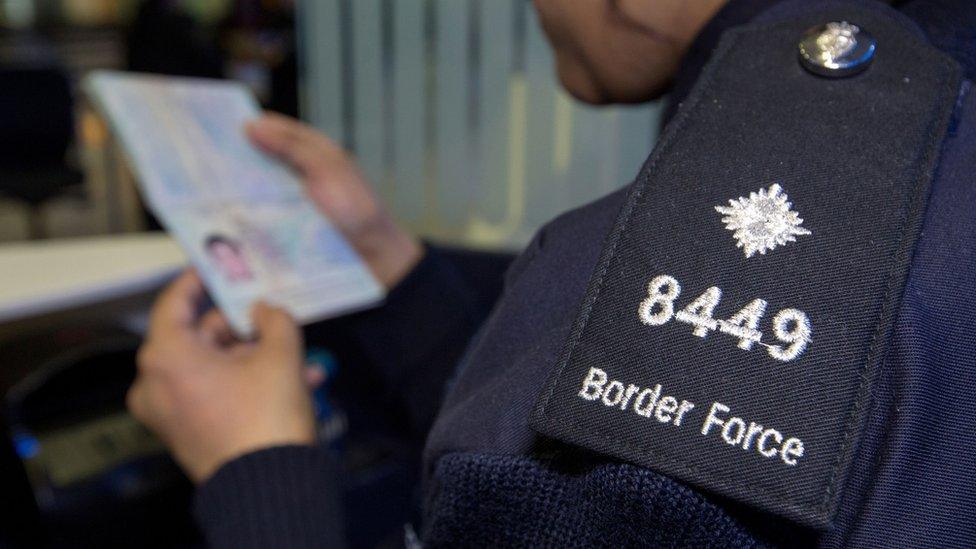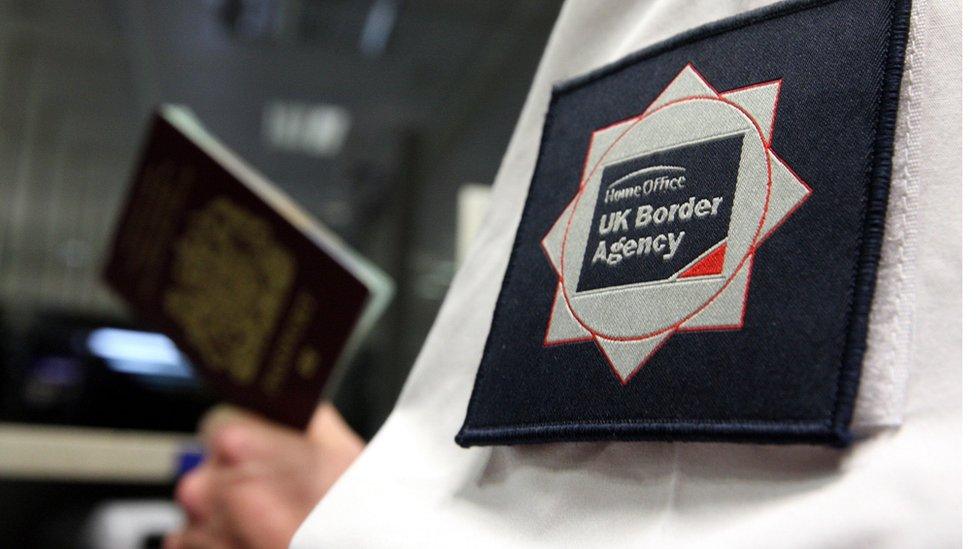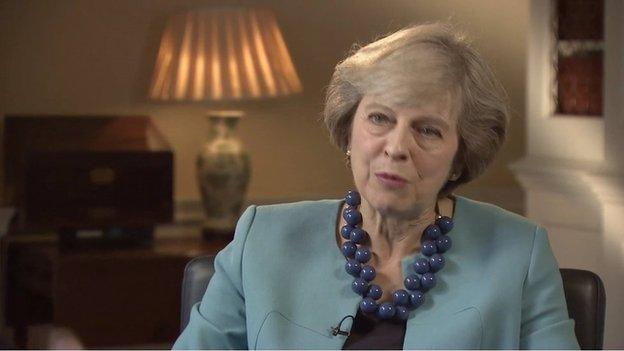Passport queues 'could be longer after Brexit', airports warn
- Published

People flying to the UK could face "severe disruption" after Brexit unless the Border Force employs more people, airports have warned.
The Airport Operators Association said more stringent passport checks for EU nationals would result in longer queues and processing times.
Its comments have been sent to a House of Lords inquiry into the movement of people between the EU and UK.
The Home Office said Border Force could meet the demand and maintain security.
According to the AOA - which represents more than 50 UK airports - the growth in air traffic has not been matched by an increase in resources for Border Force, which is responsible for immigration and customs checks.
The AOA said its members have told it a lack of resources has already led to longer queues at passport desks.

In 2015, there were 251 million passenger journeys through Britain's airports.
Figures from an annual Home Office report showed that Border Force staff numbers fell from 8,332 in 2014-15 to 7,911 in 2015-16.
The AOA's comments come after a whistleblower told the BBC last July that "stressed" Border Force staff were struggling to cope with queues to check passports at Heathrow Airport.
In evidence submitted to the House of Lords' EU home affairs sub-committee, external, the AOA said it is concerned any potential change to passport control after Brexit will make waiting times longer.
'Highly disruptive'
EU nationals travelling by air currently use a separate system or automatic ePassport gates when entering the UK, which is often quicker than systems for passengers from outside Europe.
The association said if all overseas passengers were screened in the same way at UK airports following Brexit, this could lead to an increase in waiting times at border control and would be "highly disruptive" for passengers, airlines and airports.
Airports would also have to spend millions of pounds on extra facilities for immigration checks if any stricter controls went ahead, it added.
The AOA is recommending the government keep the current system in place for EU passengers travelling to UK airports.
However, a Home Office spokesperson said: "We are about to begin negotiations with the EU and it would be wrong to set out further positions in advance, but we are clear that Border Force has the capacity to meet passenger demand and maintain security.
"Our Border Force officers currently clear passengers within our agreed waiting times in more than 95% of cases and will continue to carry out stringent checks on 100% of scheduled passengers arriving in the UK."
- Published25 July 2016

- Published30 September 2016
